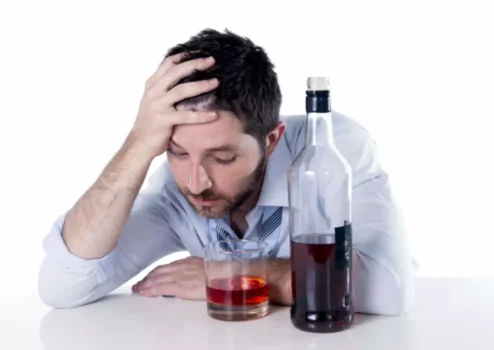PRODUCT Description
This can be particularly tempting for people with a substance use disorder whose dopamine reward networks have been compromised by addiction. Another strategy is the use of complex carbohydrates, such as whole grains and legumes. These foods are digested slowly, providing a steady energy source and helping to keep blood sugar levels stable, thus reducing cravings. Recognizing the potential influence of sugar cravings on your recovery journey anchors your commitment to overall healthier habits and favorable recovery outcomes.
The Role of Hydration in Managing Sugar Cravings
Choosing the right rehab center, with personalized care and qualified staff, is crucial for a successful treatment journey. Outpatient drug rehab is a flexible treatment program that allows individuals to overcome substance abuse while maintaining their daily responsibilities and living at home. It offers tailored therapy and support, making it a cost-effective and practical option for those with mild to moderate addiction issues. Using sugar to cope with negative affect predicted both sugar consumption and sweet craving, and alcohol craving. Sugar and other replacement rewards are not enough to break the destructive cycle of a substance use disorder.
Link Between Sweet Liking and Alcohol Use Disorder
If you have fibromyalgia, for example, and can’t run, let’s do some seated exercises, or let’s go for a light walk. According to Czerwony, the key features of sugar addiction are volume, frequency and feelings. According to the American Heart Association, the average American adult eats somewhere between 22 and 30 teaspoons worth of added sugar in a day.
Tolerance to Sugar from Alcohol Intake
Studies show that intermittent, excessive sugar intake can lead to behaviors similar to drug addiction, including bingeing, withdrawal, craving, and cross-sensitization. Therapy can also play a vital role in addressing underlying emotional issues that may contribute to sugar cravings. Understanding these factors can help individuals in recovery better manage their sugar cravings. Remember, each person’s journey is unique, so it’s important to find the strategies that work best for you and seek support from professionals or support groups as needed. Understanding these factors can help individuals in recovery manage their sugar cravings effectively.
- With repeated exposure, individuals may require higher amounts of sugar or alcohol to achieve the same pleasurable effect.
- Addiction is a chronic disorder with stages of intoxication, withdrawal, and preoccupation.
- Understanding the psychological factors that drive sugar cravings in individuals with AUD can inform more effective treatment strategies.
- After quitting drinking, there are a number of reasons why sugar hits the ‘sweet spot’ and cravings for sugar can be at all time high.
- It is crucial for individuals in recovery from alcohol addiction to prioritize their physical health through proper nutrition and lifestyle choices to reduce the risk of developing these chronic diseases.
Alcohol cravings are common, especially when you first try to change your drinking habits. It could take some time and effort to find a strategy that helps you navigate them effectively, but you do have plenty of options for support. Therapy with a trained mental health professional — particularly one who specializes in substance use and recovery — can be another great way to explore long-term changes in alcohol use.
Eating a balanced diet is one of the best things you can do to improve your health, regardless of whether you’re battling addiction. Without enough alcohol or sugar in your system to sustain dopamine levels, alcohol withdrawal symptoms will occur. Besides inducing similar sensations, the two substances why do alcoholics crave sugar can also lead to overloading the liver when taken in excess. Czerwony also notes that there are anti-obesity medications on the market that help decrease appetite and cravings for sweets. Not all providers are willing to prescribe those medications, but it’s a conversation worth having.
- Discover the three features of the best drug rehab centers to ensure successful recovery and wellness.
- Maintaining a healthy nutritional lifestyle is a form of self-care and is indicative of caring about your wellbeing, in which case you will be more inclined to care about your sobriety.
- Master in-game strategies and cure your addiction to unleash your true strength.
The dopamine 2 receptor gene, in particular, plays a role in the brain’s reward pathway and may contribute to the reinforcement of both alcohol and sugar cravings. Recovering alcoholics may turn to sugar as a coping mechanism to manage stress and fill the void left by alcohol. Sugar can provide a temporary sense of comfort and pleasure, which can be appealing to individuals in recovery who may be dealing with uncomfortable emotions and stressors. The act of consuming sugar may serve as a way to distract from or alleviate stress temporarily. However, it’s important to note that while sugar may provide temporary relief, excessive consumption can lead to health problems and potentially trigger relapse.
- Understanding the impact of blood glucose levels in the context of alcohol recovery is an important aspect of understanding why recovering alcoholics crave sugar.
- When the body lacks these nutrients, it may trigger cravings as a way to obtain what it needs.
- I hoped that pursuing a sober lifestyle—cutting out my cocktails and wine—would help.
- This is particularly relevant when considering why recovering alcoholics might crave sugar.
This means that you may be eating a lot more sugar than you realize. “If you’re getting in the recommended five servings of fruits and vegetables a day, protein and high-fiber foods, it will help stabilize your blood sugar,” Czerwony says. In fact, researchers have found that sugar lowers both opioid and dopamine receptor availability in our brains. Put simply, sugar activates the reward and pleasure centers of our brains the same way addictive substances do. When not drinking, you might begin to notice feelings of anxiety or other emotional distress, along with strong cravings for alcohol.
The Connection Between Exercise and Addiction Recovery
Similar to alcohol, sugar provides a temporary sense of comfort and pleasure. This can be particularly appealing to individuals in recovery, who may be dealing with uncomfortable emotions and stressors as they navigate their new sober lifestyle. However, it’s important to note that while sugar may provide temporary relief, excessive consumption can lead to health problems and can potentially trigger relapse. There are several reasons people in addiction recovery may develop a preference for sweet foods.
- - 574
- ! Без
- ! Без рубрики
- !Fortune tige
- "fc Seoul Vs Jeju United Match Prediction & Betting Ideas With Live Odds - 490
- "mostbet Az-90 Kazino Azerbaycan Lap Yüksək Bukmeyker Rəsmi Sayt - 878
- "mostbet En Vivo: Haz Tus Pronósticos Sobre Directo Y Disfruta De Su Buffering" - 786
- +btoct
- +novPU
- 1
- 1win
- 1Win AZ Casino
- 1Win Brasil
- 1win Brazil
- 1WIN Casino Brasil
- 1win India
- 1WIN Official In Russia
- 1win Turkiye
- 1win uzbekistan
- 1winRussia
- 1wins-moldova.mdro-md x
- 1x-bet.downloa
- 1xbet egypt
- 1xbet Russian
- 1xbet3
- 1xbet32
- 1xbet4
- 1xbet51
- 1xbet52
- 1xbet61
- 1xbet62
- 1xbet82
- 2
- 2024te-Yeni-Üye-Olmanın-Avantajları-Deneme-Bonusu-Veren-Casinoslar.html
- 20Bet Deutschland
- 212
- 222
- 22bet Schweiz
- 26
- 2nd level
- 3
- 3dinvesting.com
- 4
- 5
- 5trucks.ru 500
- 6
- 7 slots
- 7slots
- 7к-казино
- 8
- 9
- a16z generative ai
- a16z generative ai 1
- acad
- Accessories
- adaptationfestival.gr
- adm
- adobe generative ai 1
- adobe generative ai 2
- afyonsosyetepazari.com 1
- AI Chatbot News
- AI News
- aliexpres.com.ua - офіційний сайт Аліекспрес в Україні
- alizeyeniufuklar.com
- almaradio.gr
- amminex.net 2
- amnistiepdm.org - Official Website of Safe Casino Sites in South Korea
- anbhoth.ie
- ankaratarotfali.com 2
- antalyaerenhali.com 1
- antalyaerenhali.com 2
- anushkatrivedi.comen-bd x2
- Apex-Clover-Link-Slot-Oyna---Kazançlı-Çevrimler.html
- archpoints.gr
- Artificial intelligence
- Artificial intelligence (AI)
- asian brides
- augustent.com 1
- Ausländische Online Casinos Schweiz – siehe offizielle Website fanarbeit.ch
- auto-info.hr 2
- aviator-game-official.netlify.app 1
- aviatorSITESI_may
- axiomaltd.ru 1500
- Bahigo Schweiz
- ballybunionartsfestival.ie bCasino
- bambturkiye.com 1
- BankOnBet
- bashpirat.ru 2000
- batery.org.in3
- BC.GAME Casino Schweiz
- bedava-slot-siteleri.com 1500
- bedava-slot.com 1500
- bedpage
- behar.hr 2
- belanok.mk
- best-news
- besyohocam.com 2
- bet10
- bet10 casino
- bet10-casino
- bet442casino.co.uk - UK
- Betmgm Bonus Code Nyp1500dm Grants A 20% Deposit Match Or $1, 500 Initial Bet For Broncos-saints 'thursday Night Football' - 862
- Betonred Casino Schweiz
- betspecial.co.uk 2
- Betting Company Mostbet App Online Sports Betting - 111
- bh_aug
- bh_sep
- bhnov
- bhoct
- BHS-Links
- BHTopJun
- Big-Bass-Bonanza-Blaze-Oyun-İncelemesi.html
- Big-Bass-Bonanza-İkili-Kazanma-Stratejileri-ve-İpuçları.html
- Bigger-Bass-Bonanza-Oyna-Ücretsiz---Slots-Oyunu.html
- bilimufku.com 2000
- biznisakademija.hr
- biznisakademija.hr 2
- Bizzo Casino – Offizielle Website in der Schweiz – editori-sesi.ch
- Bizzo Casino Schweiz
- black-seo-links
- Blog
- Blog Lk
- bonanzasitesi_may
- Bonus-Veren-Casino-Oyunları-En-İyi-Seçenekler.html
- Bookkeeping
- Bookmaker Şirkəti Mostbet: Formal Mobil Versiya Icmalı - 336
- bootstrap-3.rucss.php 900
- borka.org.mk
- braintreerec.com2
- brunch-cafe.ru
- BT_Prod_aug
- bt_sep
- btbtnov
- BTTopJun
- Buon Ma Thuot Itinerary: Explore Buon Ma Thuot in 1,2,3, and 4 Days - 115
- Buon Ma Thuot Itinerary: Explore Buon Ma Thuot in 1,2,3, and 4 Days - 534
- cam-girls
- camp-hockey.ru 500
- campionsbb.com 2000
- cashwin casino schweiz
- casino
- casino en ligne fr
- Casino Mostbet Mostbet Kaszinó Értékelés Nagy Nyeremények És Könnyű Kifizetések Mostbet - 733
- casino onlina ca
- casino online ar
- casinò online it
- Casino Oyunları Giris Yukle Bonuslar - 3
- casino-bet10
- Casino-Oyunlar-ve-Slot-Stratejileri-Şansınızı-Artırmanın-Yolları.html
- casinogermanyforpoland
- casinos
- Casinozer Avis +350 + Fondamental Libéralisation Spins Offert 100% Gratuit - 146
- catcasino-mix
- catcasino4
- cc-women-hellas-virtual-events.gr
- ccasino
- cdradvocacy.org
- centralrest.ru 500
- cerkezkoyisilanlari.com 1500
- CH
- Chathub
- Chatib
- chiorc.gr
- CHjun
- christofilopoulou.gr
- chytayemotut.com.ua
- CIB
- ciroblazevic.hr
- Cities
- City COCO
- content2
- Coolzino Casino Schweiz
- creativeworkingplayground.com
- creativeworkingplayground.com 1000
- Cryptocurrency exchange
- Cryptocurrency News
- czbrandss
- Dede-Casino-Kumar-Oyunu-Gates-of-Olympus-Slot-ile-Eğlenceyi-Zirveye-Taşıyın.html
- Deneme-Bonusu-Veren-Siteler-Kazanç-Fırsatlarını-Keşfedin.html
- dirty-talk
- dkmarino.ru 2000
- dogakentkres.com 2
- drop sk, cz
- drugs
- dutchbikeshop.ie Casinoly
- EC
- Echat
- ecospace
- eda-52.ru 500
- edirectory.ie
- Education
- Efsane-Slot-Oyunlar-ve-En-İyi-Kazandırma-Zamanları.html
- Efsanevi-NetEnt-Slot-Oyunlarıyla-Heyecan-Dolu-Bir-Yolculuğa-Çıkın.html
- Efsanevi-Slotlar-Pragmatic-Play-İle-Şansınızı-Deneyin.html
- egt-casino
- EGT-Slot-Oyunları-Eğlence-Dolu-Bir-Dünyaya-Adım-Atın.html
- ekaterina-school.ru
- Electric Motorbike
- Electric Scooter
- Electric Golf Scooter
- Electric Motorcycle
- Electric Tricycle
- Fat Tire Motorcycles
- Mini Electric Scooter
- elena-kapustina.ru 500
- elysiondanismanlik.com 1000
- en-iyi-slotlar.com 1500
- en-kazanl-slot-oyunlar-66b19ona.net 1000
- epilepsi
- epilepsie
- epilessia
- eporner
- Essentiel Casino En Tracé Langue Super Essentiel Répertoire De Août 2024 - 446
- ethnicitycelebration.ie MyStake
- Exploring Mostbet App In India: A Thorough Guide - 788
- ən Yüksək Mastercard Kazino Azərbaycan 2024 ️ ən əla Mastercard Onlayn Kazinoları - 389
- Fairspin-casino
- fapello
- fast
- festivalaki.gr
- find a bride
- findpolice.ru 700
- FinTech
- fishingbaits.ru 2000
- Forex Trading
- free_spins_free
- fruitslotpaly.com
- Future Trends In Crypto Wallets: Whats Next For Ironwallet? By Investing Com Studios - 149
- g
- galernaya20.ru 600
- games
- gates-of-olympus-oyna-demo.com 1000
- gates-of-olympus-oynayanlar
- Gates-of-Olympus-Slot-Dede-Casinoda-Büyülü-Bir-Kumar-Deneyimi.html
- generacijanext.hr 2
- gennaiapaidia.gr
- genunlimited.mk
- geratalentos.pt
- gerbera.cc
- ggokpoker-ru.ru
- ggpoker-ru.ru
- girls-do-porn
- golden-bet-casino.fr - FR
- goteborgwok.se
- haciozkan.com 1000
- hashtagmafia.de
- HellSpin Casino Official Global Website
- heylink.memostbet-giris_may
- Homepage
- httpsbass-bet.eu.comhubonus - HU
- httpsbass-bet.eu.comhumobile - HU
- httpsbass-bet.eu.comhuslots - HU
- httpsbass-bet.eu.complbonus - PL
- httpsbass-bet.eu.complslots - PL
- httpsenergycasino.eu.comhulogin - HU
- httpsenergycasino.eu.complbonuses - PL
- httpsenergycasino.eu.compllogin - PL
- httpsposido-casino.eu.comes - ES
- httpsposido-casino.eu.comeslogin - ES
- httpsposido-casino.eu.comesmobile - ES
- httpsposido-casino.eu.comfr - FR
- httpsposido-casino.eu.comfrlogin - FR
- httpsposido-casino.eu.comfrmobile - FR
- httpsspinanga.eu.comesbonus - ES
- httpsspinanga.eu.comeslogin - ES
- httpsspinanga.eu.comitbonus - IT
- httpsspinanga.eu.comitlogin - IT
- httpswonaco.eu.comfrbonuses - FR
- httpswonaco.eu.comfrmobile - FR
- httpswonaco.eu.comhubonuses - HU
- httpswonaco.eu.comhumobile - HU
- IGAMING
- igry-nardy.ru
- ihnk.ru 700
- ikranalchik.ru 500
- infopot.ru 2500
- inquisitivereader.com z1
- inquisitivereader.comapp z2
- intellectplanet.ru 1500
- Interwetten Schweiz
- iOS-Mobil-Ödeme-Bahis-Siteleri-Rehberi-2024(2).html
- ireland2040.ie 1Bet
- irelandskillslive.ie Rolletto
- iskonstrukcije.hr
- istoriyaplanety.ru 500
- IT Education
- IT Vacancies
- IT Вакансії
- IT Образование
- IT Освіта
- italyanmutfagihaftasi.com 1
- ivermectina
- Ivermectine
- IviBet Schweiz
- Jeetcity casino schweiz
- jk-yagoda.com.ua
- Jogos E Bônus Do Casino Mostbet Pt - 328
- joomla-school.com
- july_bh
- july_bt
- july_rb
- kartonbardakci.net 1000
- kasyno
- Kasyno Online PL
- kazino-onlayn-reyting-luchshih.xyz 2
- kazino-onlayn-reyting.xyz 2
- keepaneye.mk
- kentt.xyz
- kgskouskosh3.ru 4000
- king johnnie
- klen
- konteynerimalatsatis.com 1000
- kromatografi2023.org 1
- kspb2
- kumar-siteleri(1)_1
- kuzeyyrentacar.com 1500
- latin dating
- Learn English Online Together With Native Level Teachers - 311
- legal-casino-siteleri_1_1
- lenovo-smart.ru 2000
- leramiss
- lightnovosti.ru 170
- list crawler orlando
- Listcrawler central jersey
- listcrawler corpus christi
- Listcrawler san diego
- Lotoclub
- lovepang.ie Malina
- luckhome.ru 2000
- luckyladycharm.hr
- machintech.ru
- machintech.ru 500
- magnosolv.hu x
- mail order bride
- mail order wife
- mais2 com
- maisondecharme.ru 1000
- manaki.mk
- marios-grosser-traum.de
- Marsbahissitesi_may
- max-millions.co.uk - UK
- melbet-app.pro2
- melbetapppk.com
- melbetapppk.comen-pk x2
- melbetcanada.org2
- Meritking-Rulet-ve-Sorumlu-Oyun-Dikkat-Edilmesi-Gerekenler.html
- Metefe-ile-Casino-Sitelerinde-Hızlı-Para-Çekme.html
- Mini Bike
- missionaguafria.com
- missionaguafria.com6
- mobil-slot.com 1500
- mobileporngames
- Monro-casino
- Moonwin Casino – Offizielle Seite in Deutschland
- Mosbet: Onlayn Kazino Və Idman Mərcləri - 232
- Mosbet: Onlayn Kazino Və Idman Mərcləri - 815
- Mostbet £5 Free Bet No Deposit Every Day Of The Cheltenham Festival - 178
- Mostbet Affiliate Program Online Bookmaker Mostbet Partners - 124
- Mostbet Affiliate Program Online Bookmaker Mostbet Partners - 773
- Mostbet Affiliate Program: Ultimate Guide For Success - 254
- Mostbet Agent App Download - 968
- Mostbet App Apk Bangladesh Download For Android 2023 - 869
- Mostbet App Download 2024 Free Online Update V6 53 - 875
- Mostbet App Download Apk For Android And Ios - 310
- Mostbet App Download For Android Apk And Ios 2023 - 545
- Mostbet App Download For Android Apk And Ios In Bangladesh - 627
- Mostbet App Download In Pakistan Mostbet Apk For Android - 830
- Mostbet App Download Is Your Gateway To Immersive Casino Gaming - 544
- Mostbet App Download Is Your Gateway To Immersive Casino Gaming 【中途採用ノウハウ】 リクルートエージェント - 886
- Mostbet AZ Casino
- Mostbet Az-90 Kazino Azerbaycan Daha əla Bukmeyker Rəsmi Say - 660
- Mostbet Az-90 Kazino Azerbaycan Lap əla Bukmeyker Formal Sayt วิปัสสนาภาวนาธรรมโมลี - 806
- Mostbet Azerbaycan Yukle Android Apk Və Ios App-d - 248
- Mostbet Bangladesh Application For Android And Ios - 763
- Mostbet Bangladesh Official Site Sports Betting And Casino Freebets And Freespins - 799
- Mostbet Bd Internet Affiliate Marketing For The Partners Études Romanes : Cahiers Numériques De La Jeune Recherche - 278
- Mostbet Betting Company And Casino In Egypt Play And Make Bets - 231
- Mostbet Bonus Code Acquire Up To $1, 000 Bonus Bets - 160
- Mostbet Bonus Code Postnews: Snag $200 In Bonus Bets Or Perhaps $1k Bet Insurance For Yankees-guardians Sport 3, All Sports - 170
- Mostbet Bonus Program Code Rotowire: Get $1000 Promo Cowboys-browns & More Nfl Odds - 138
- Mostbet Cash Earn Money With Mostbet Via Mobcash App - 598
- Mostbet Casino Almost All Inclusive Μπόνους Για Την Πρώτη Κατάθεση - 794
- Mostbet Casino Online ⭐ Register And Get Welcome Bonus Now - 120
- Mostbet Casino Online ⭐ Register And Get Welcome Bonus Now - 252
- Mostbet Casino: Best Slots 2024 App Login - 205
- Mostbet Casino: актуальные зеркала на сегодня, регистрация, вход, скачать Aarambh Corporate Pvt Ltd - 27
- Mostbet Cheltenham Festival 6th Horses Daily Problem Win Approximately £250k" - 315
- Mostbet Com Live-casino In Bangladesh: Real Casino Action Online! - 70
- mostbet Com Sports Betting On The App Store - 233
- Mostbet Ghana Review Totally Free Bets Up In Order To Ghs 200 Oct 2024 - 875
- Mostbet Giriş Mostbet Türkiye Güncel Giriş Adresi - 999
- Mostbet Kaszinó Online Hivatalos Oldal Mostbet Casino Hungary Nyerőgépek, Bónuszok, Bejelentkezés - 312
- Mostbet Login To Your Online Casino Personal Account In Bangladesh! - 432
- Mostbet Mobil Tətbiq: Azərbaycandan Olan Oyunçular ötrü Icmal 2023 - 639
- Mostbet Mobile App: Review For Players From Azerbaijan 2024 - 963
- Mostbet Nepal: Subscribe With The 46,000 Rs Welcome Bonus - 824
- Mostbet Online Casino And Betting Platform In Pakistan Mobile App - 684
- Mostbet Online Casino And Betting Platform In Pakistan Mobile App [newline]baixar O Mostbet App Para Android Apk E Ios Grátis - 591
- Mostbet Online Casino And Betting Platform In Pakistan Mobile App [newline]baixar O Mostbet App Para Android Apk E Ios Grátis - 811
- Mostbet Overview 2024 Can A Person Trust This Gambling App?" - 775
- Mostbet Pakistan: Official Sports Betting Site 125% Bonus Login - 743
- Mostbet Partners Affiliate Program Review 2023 Upto 60% Revshare - 811
- Mostbet Partners Reviews Read Customer Service Reviews Of Mostbetpartners - 231
- Mostbet Pennsylvania Casino Added Bonus Code Bookies: Get $500 Match Benefit + 100 Moves For October 18th - 922
- Mostbet Portugal Receba Um Bónus De Até 1400 Pln Na Mostbet Pt Hoje! - 357
- Mostbet Registration How You Can Sign Up & Log In" - 457
- mostbet tr
- Mostbet UZ Kirish
- Mostbet Uzbekistan Официальный Сайт Спортивных Ставок И Онлайн-казино Uz 2023 - 7
- Mostbet Wettunternehmen Und Online-casino In Deutschland - 710
- Mostbet-az 45 Azərbaycanda Bukmeker Və Kazino Reward 550+250f 金州資訊 - 821
- Mostbet-az90 ⭐️giriş Və Bonuslar - 174
- Mostbet-az90 Azərbaycandakı Şirkətin Icmalı - 541
- Mostbet-az91: İdman Mərcləri Və Gir วิศวกรรมสถานแห่งประเทศไทย ในพระบรมราชูปถัมภ์ - 699
- Mostbet: Seamless Gaming Awaits Access Login And Mobile Apps Here! - 100
- Mostbet: Unleash Your Winning Potential With The Best Online Bookmaker - 883
- Mottobet---Türkiyenin-En-İyi-Bahis-Sitesi.html
- MOVIEBLOG
- my-1xbet.com
- my-guitar.ru 500
- new
- News
- Nigeria" - 567
- Nine Casino Official Website
- normel-spb.ru 2500
- nppr.hr 2
- Official rating of licensed and safe online casinos in South Korea
- Official website 22Bet
- Official Website For Sports Betting With Bdt 25,000 Bonus - 718
- Official Website For Sports Betting With Bdt 25,000 Bonus - 746
- Official website of Online Casino Rating in South Korea
- Offizielle 1xbet-Website in der Schweiz
- Offizielle Bewertung ausländischer Online-Casinos in der Schweiz
- Offizielle Bruce Bet-Website in Deutschland
- Offizielle Casinia-Website
- Offizielle Roobet-Website in der Schweiz
- Offizielle Roobet-Website in Deutschland - roobetsportwetten.com
- Offizielle Website BC Game Casino in Schweiz - stadionrestaurant.ch
- Offizielle Website des Buchmachers Rabona in Deutschland - rabonaonline.de
- Offizielle Website des Kingmaker Casinos in der Schweiz
- Offizielle Website des Lemon Casinos in der Schweiz
- Offizielle Website des NV Casinos in der Schweiz
- Offizielle Website des Spinanga Casinos
- Offizielle Website des Sportaza Casino in der Schweiz - lateinturerie.ch
- Offizielle Website von 20Bet in der Schweiz
- Offizielle Website von Bahigo in der Schweiz
- Offizielle Website von Betonred in der Schweiz - betonredcasino.ch
- Offizielle Website von Nine Casino
- okggpoker.lol
- okonlineplay.live
- Omegle
- Omegle cc
- omegle.is
- ondr.pt
- onlayn-kazino-reyting.xyz 1
- onlifezone.com - 대한민국의 라이선스 카지노 사이트 평가를 제공하는 국가도박관리위원회(NGCC)의 공식 정부 웹사이트입니다
- Online Betting Best Wagering Site - 275
- online casino au
- Online Gambling And On The Web Casino Games - 956
- onlinecasinopolska
- onwinsitesi_may
- oooat.ru
- organismosathinas.gr
- ostvarisan.hr
- Oyun-Tutkunları-İçin-En-İyi-Yatırım-Artsız-Casino-Siteleri-Forumda-İpuçları.html
- p0kerdom.wiki
- Pablic
- paratissimaskopje.mk
- pauzazapregled.mk
- Paycell-ile-Casino-Oyunları-Oyna---Kolay-Yöntemler.html
- pbnov
- pboct
- PBTOPJun
- pereezd.pl.ua
- perfume-paris.ru 1000
- pin up casino
- Pin UP Casino AZ
- Pin Up Peru
- pin-up
- pinco
- pinup
- PinUP AZ Casino
- pistolo-casinò.it - IT
- pistolocasinò.it - IT
- planet9.hr 2
- play-7k.live
- play.google.comstoreappsdetailsid=com.pinco.nicotoss_Английский
- playpoker-ru.ru
- playzilla casino schweiz
- plinko
- Plus Grand Essentiel En Ligne Fondamental Bonus Jamais Dépôt Exclusif - 383
- poemsandcrimes.gr
- poker-doms.store
- poker.ok-play-poker.click
- poker.play-online-ok.store
- pokerdom-casino.digital
- pokerdom-cazino.ink
- pokerdom-kaz.store
- pokerdom2.guru
- pokerdom24kz.wiki
- pokerdomkaz.live
- pokerdomkazahstan.biz
- pokerplay-ru.ru
- pokervdom.info
- politklass.ru
- porndude
- porngames
- post
- Posts
- premium-cashback.ru 2500
- processed
- PU_aug
- pu_sep
- pu++
- punov
- pytube.io2
- r7-kasino8.site
- r7kazino.life
- Rabona Schweiz
- radio-krapina.hr
- Rating of licensed and safe casino sites in South Korea on the100bestfleets.com
- rboct
- redtube
- remont-casio.ru 500
- remont-iwc.ru 500
- resilientinvestment.orgcanadaonline-casinos z
- review
- reyting-kazino-onlayn.xyz 2
- reyting-luchshih-kazino-onlayn.xyz 2
- reyting-onlayn-kazino-evropy.xyz 2
- reyting-onlayn-kazino-po-vyplatam.xyz 1
- reyting-onlayn-kazino-rossii.xyz 2
- reyting-onlayn-kazino.xyz 2
- reyting-top-10-onlayn-kazino.xyz 2
- riobet5.xyz
- robocatkaszino.hu - HU
- RoksitesiJun
- Roobet Schweiz
- RTP-Slotlarda-Kazanç-Yüzdesini-Artırmanın-5-Yolu.html
- rybelsus
- Sahabet_may
- samsunservisi.com 1500
- sas
- sch11-krasnochervonniy.ru
- scotlandin.space2
- seanamoni.gr
- Şeker-Patlatma-Oyunu-Bahislerinde-Kazanmanın-Sırları.html
- selectorcasino.lol
- selektor5.xyz 600
- Sentyabr 2023 Vərəq 62 Təzə əhval Media - 774
- seo
- seo-links
- seokaya-in-telegram
- service-plus.fr z1
- service-plus.fr z2
- setembroavidainteira.pt
- sevinf.ru 2
- sexting
- sexy-girls
- SFC
- sinanspor.com 1500
- sistemarabuluculuk.com 1000
- sizzlinghotdeluxe.hr
- Skokka
- skonline
- skopjekreativa.mk
- slot-oyunları-demo.net 1000
- Slot-Oyunlarında-Riskleri-Azaltmanın-Yolları.html
- Slot-Oyunlarında-RTP-Oranı-Kayıplarınızı-En-Aza-İndirin.html
- Slot-Uçak-Oyunu-Aviatoru-Oynamanın-En-İyi-Taktikleri.html
- slottica
- smartline93.ru
- Sober living
- Software development
- sondakikaguncelhaber.com 2
- sourliboom.com
- South Korea Casino Site Recommendations - Kangwon Land Official Site - onlifezone.com
- spankbang
- spbunesco.ru 2000
- spellwin.pl - PL
- spinsy-casino.fi - FI
- spinsycasino-fr.com - FR
- spinsykasyno.pl - PL
- stake-casino-ru.ru
- Starlight-Princess-Pachi-Oyun-İncelemesi-ve-İpuçları.html
- steiko.ru 500
- stromectol
- Sugar-Rush-Slot-Pragmatic-Play-Oyun-İncelemesi(2).html
- svsdvsfg
- Sweet-Bonanza-Açığı-Var-mı-Gerçekler-ve-İpuçları(2).html
- Sweet-Bonanza-Oyununda-En-İyi-Kazandırma-Saatleri-Nelerdir.html
- Sweet-Bonanza-Satın-Alma-Özelliği-Açıklaması(2).html
- sweet-bonanza.best 2000
- Tablet
- tandemngo.gr
- tecrubekonusuyor.net 1000
- teleia.com.gr
- test
- The Best Bookmaker And Online Casino In Germany - 151
- The-Dog-House-Slot-İndir-Ücretsiz-Casino-Oyunu.html
- the-omegle
- thelongeststride com
- thenorthfacemontturkiye.com 2
- tipobet turkiye
- tkokaze.hr 2
- TOP New Zealand online casinos
- top-reyting-onlayn-kazino.xyz 2
- TORRENT
- tr
- Troubleshooting Login Issues About Mostbet - 42
- Türkiyenin-En-İyi-Kumar-Siteleri-2024-Listesi(1).html
- tut-boxing.ru 2000
- uaw-chrysler.com 2
- Uncategorized
- unique casino schweiz
- Unsere neue offizielle Bahigo-Website in der Schweiz - schweizbahigo.ch
- UsaSexGuide
- vavada
- vddsvds
- veshka-adm.ru 1500
- victorbout.ru 500
- VIDEOSTREAMING
- vodka-casino-bonuskod.ru
- voziodsrce.mk
- vulcn.pro 2000
- vulkan-casino
- vulkn.online 2000
- vulkn.xyz 2000
- vullkan-lapsha
- Wettigo Schweiz
- What Does The Stage Spread Mean? - 756
- wielosfer.pl
- Wild-West-Gold-Yasal-Site---Güvenli-Casino-Oyunları.html
- Winning-Strategies-How-to-Use-Demo-Slots-to-Your-Advantage.html
- xamou.gr
- xanax
- xn----7sb3aca9ahcif.xn--p1ai 1500
- xn--80aaaiarepjsfqo6ayv.xn--p1ai 500
- xn--90awgb.xn--p1ai 900
- xn--b1amash.xn--p1ai 2000
- xslot
- xvideos
- Yenilikçi-Slot-Casino-Oyunlar-Eğlencenin-En-Son-Halini-Keşfedin.html
- yk
- ysftesisat.com 2
- zenginsozluk.com
- zoomacasino
- казино
- Комета Казино
- Новости
- Новости Криптовалют
- Новый Актуальный Адрес Входа Для Mostbet Россия В 2023 Году - 918
- Скачать Mostbet на Андроид бесплатно приложение 1Вин на телефон БК 1 Вин - 245
- Скачать Приложение Mostbet Для Android Apk И Ios В 1 Клик 2023 - 260
- Скачать Приложение Mostbet Для Android Apk И Ios В 1 Клик 2023 - 81
- Финтех
- Форекс Брокеры
- Форекс Обучение
- Форекс партнерская программа
- ශ්රී ලංකාවේ Mostbet ඔන්ලයින් ඔට්ටු ඇල්ලීම: Mostbet සමඟ විශාල ජයග්රහණයක් ලබා ගන්න සහ ප්රසාද දීමනා ගන්න - 186
- 카지노사이트 순위 한국에서 가장 인기있는 온라인 도박 플랫폼
- 한국 안전 카지노 사이트 평가
- 한국 정부 승인 최고 안전 카지노 순위는 onlifezone.com 에서만 확인 가능합니다
- 한국에서 허가받고 안전한 온라인 카지노의 공식 등급 - onlifezone.com
+86-15150222860
3rd Floor, Building 1,No.88 Guoshan Street, Guoshan Village, ZhiyingTown, Yongkang City, Jinhua City, Zhejiang Province, China






